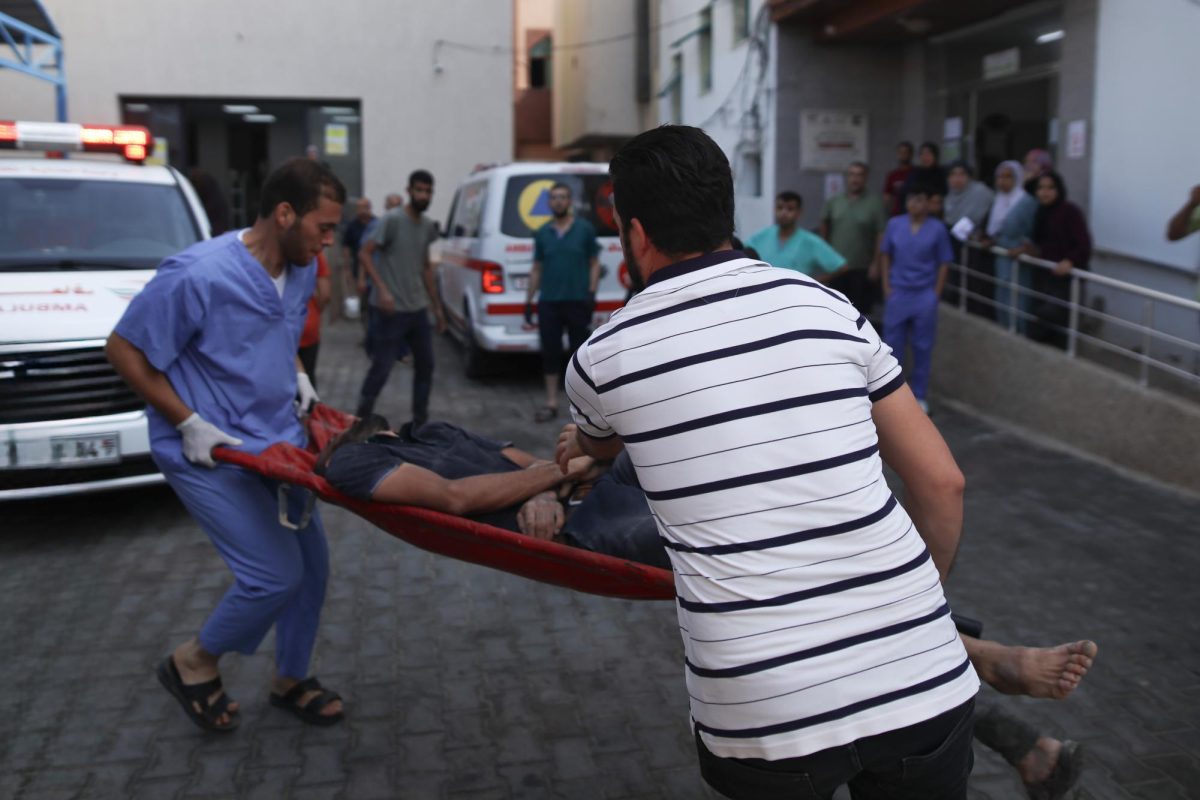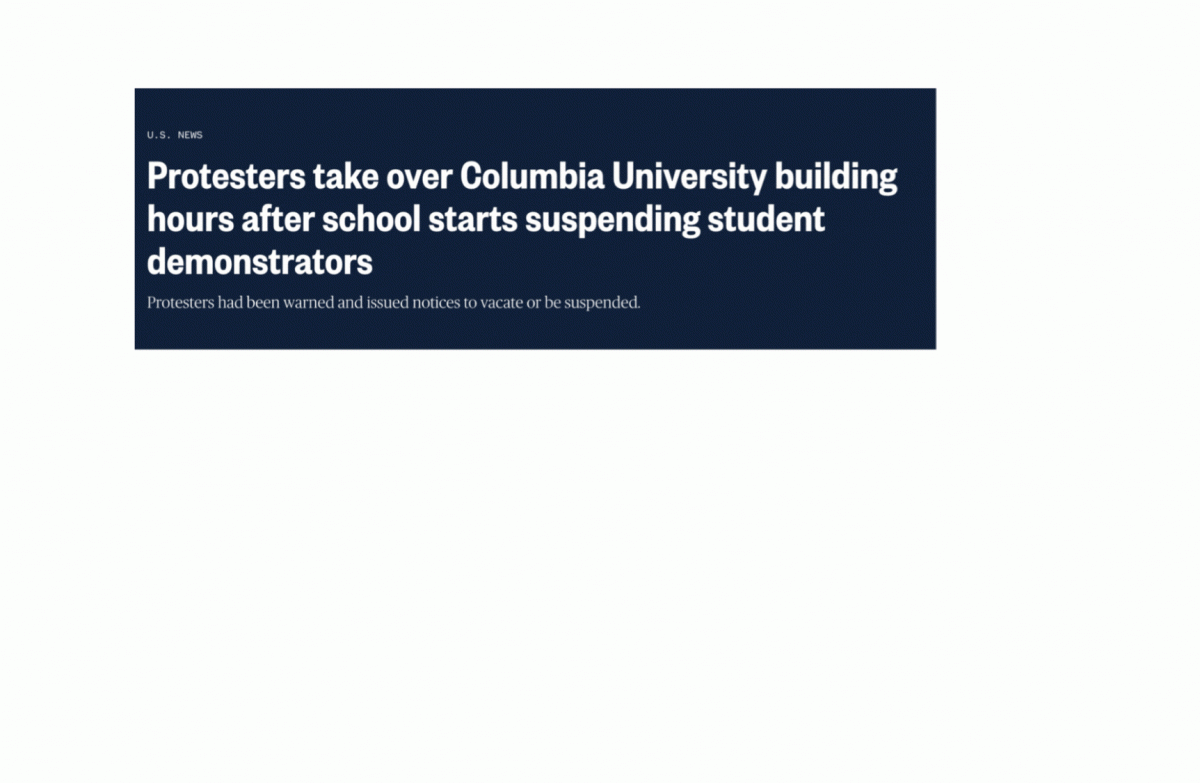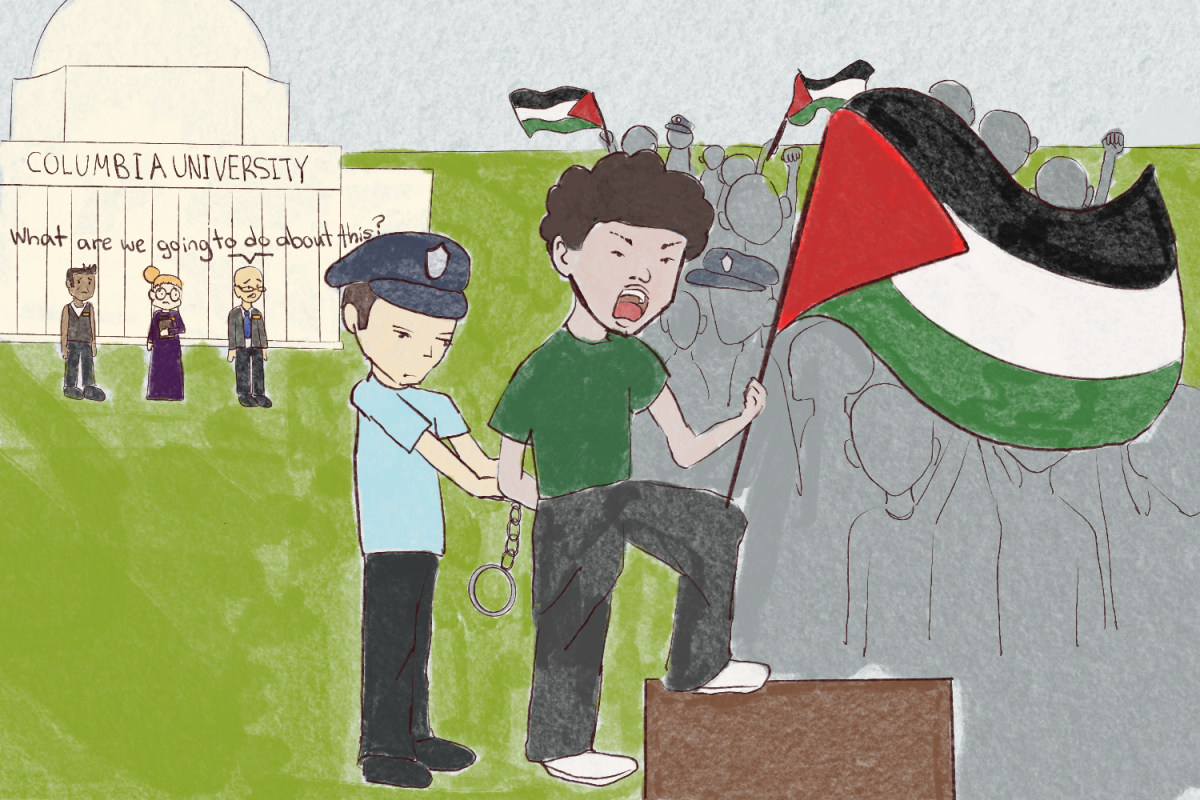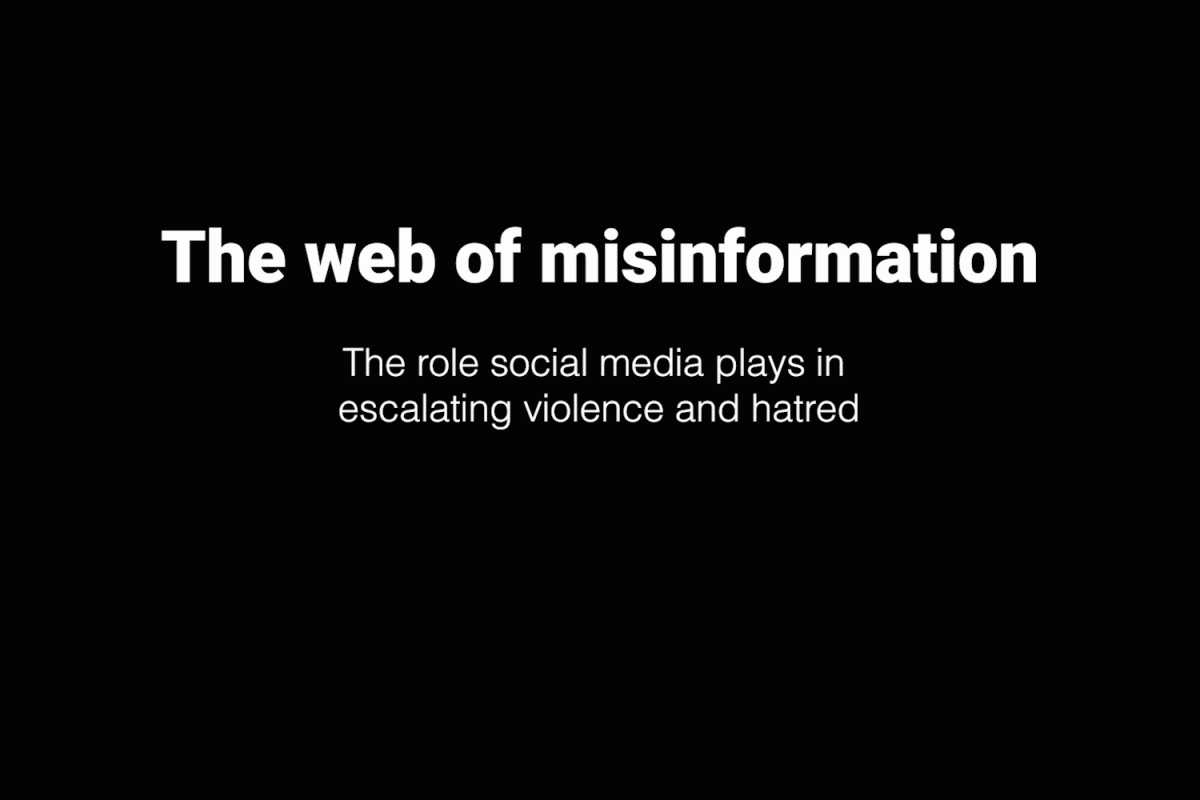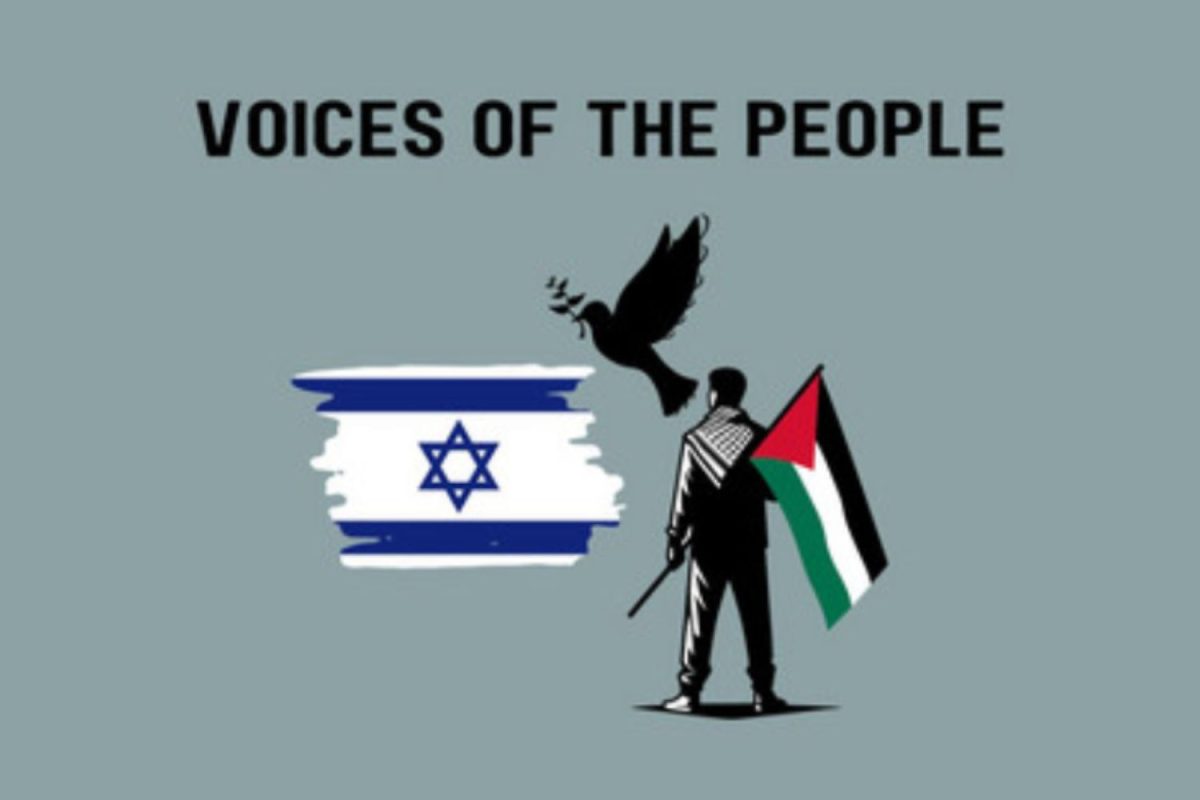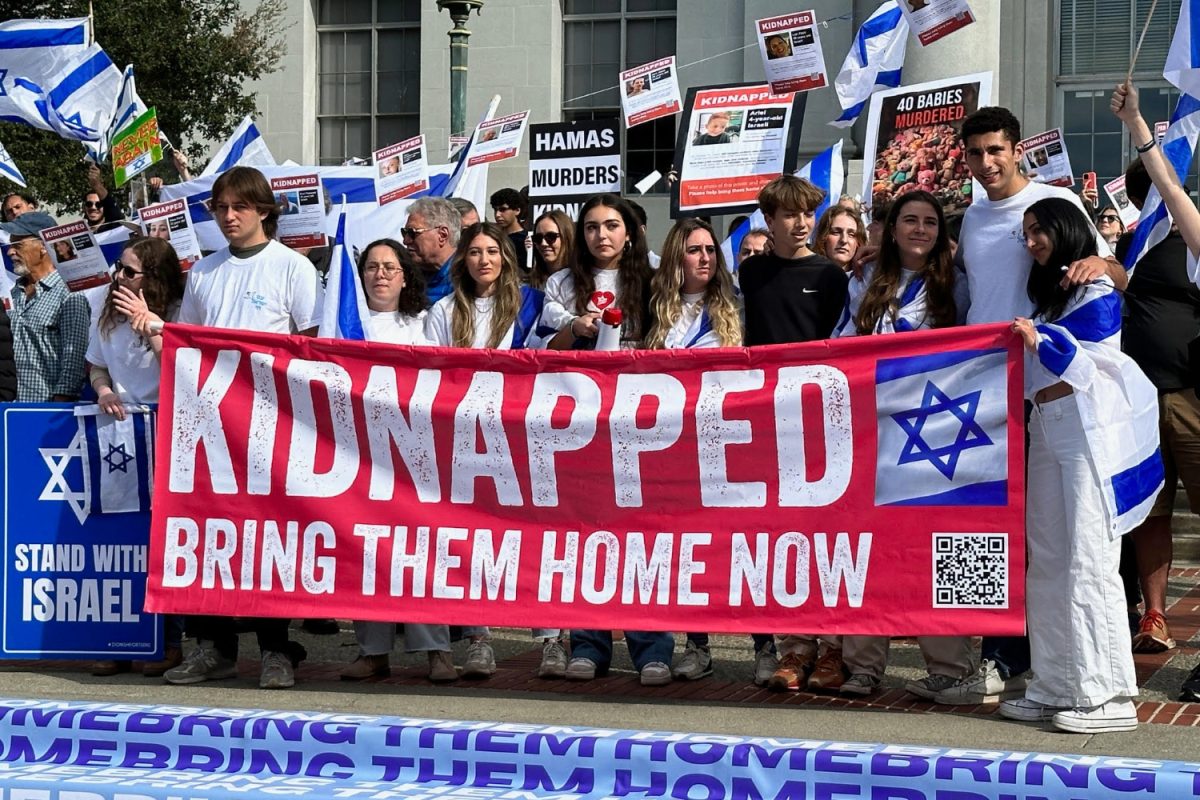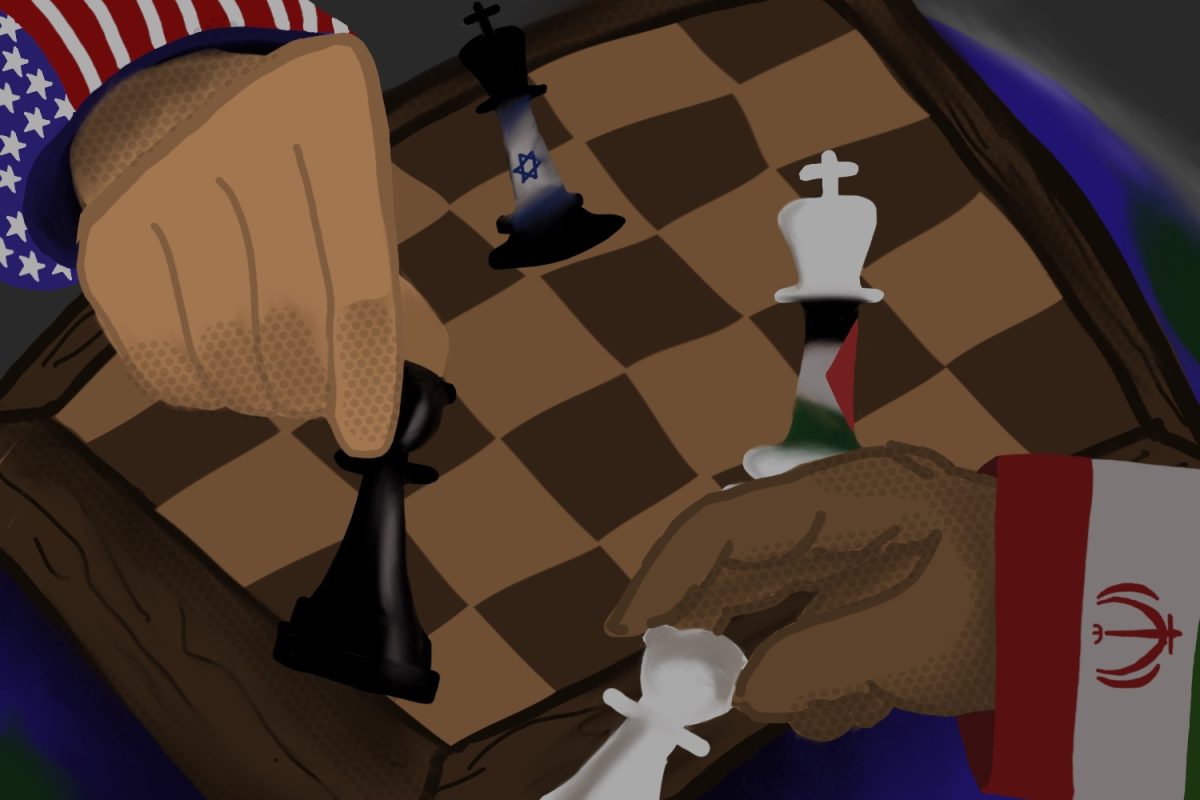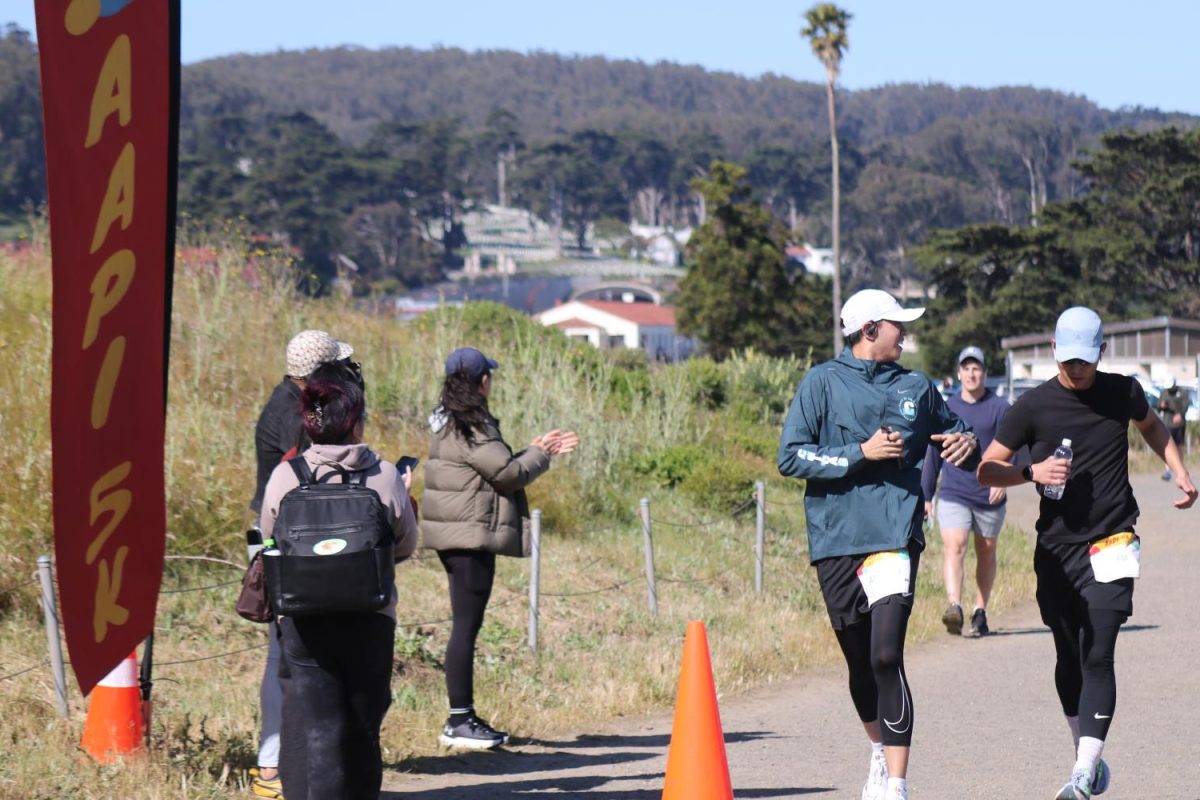Trigger Warning: Mentions of violence, hostages, and death.
The lights are out in the Gaza Strip.
On Oct. 11, 2023, Gaza’s sole remaining power station ran out of fuel, sentencing the lives of Gaza citizens to darkness. Israel’s siege on Gaza and the Israel-Hamas war has created a dire humanitarian crisis in Gaza, creating a severe shortage of water, food, fuel, and medical supplies.
“The situation in Gaza is nothing short of a full-fledged humanitarian catastrophe,” said Bria Justus, the media relations manager for Project HOPE, an international humanitarian aid organization with volunteers currently active in Gaza.
For over a month, people in Gaza have been forced to live without electricity. With a densely packed population of over 2 million people, many of whom need medical attention due to the ongoing war, hospitals have become vital to survival.
“Right now, people need mental health support, medical care, and basic needs like food and clean water. Without an immediate ceasefire and improved humanitarian access, we will continue to see more and more people die. It is a distressing reality,” Justus said.
According to the World Health Organization (WHO), 20 of the 36 hospitals in Gaza are no longer functioning. The remaining hospitals are overcrowded, understaffed, and running out of supplies.
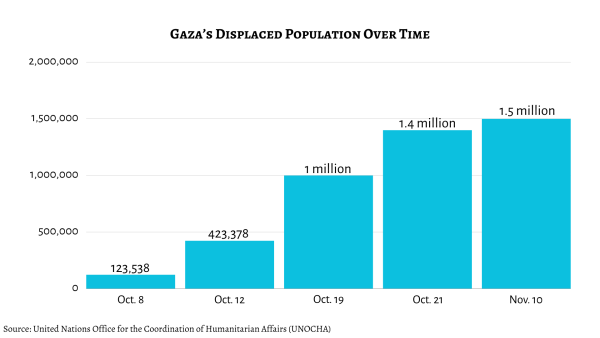 Currently, hospitals have backup generators to power their most crucial machinery, but with the Gaza power station down, their generators will eventually cease to function as well. The last generator in the al-Shifa Hospital, Gaza’s largest medical complex, ran out of fuel on Nov. 11, causing the death of five patients, one of whom was a premature baby.
Currently, hospitals have backup generators to power their most crucial machinery, but with the Gaza power station down, their generators will eventually cease to function as well. The last generator in the al-Shifa Hospital, Gaza’s largest medical complex, ran out of fuel on Nov. 11, causing the death of five patients, one of whom was a premature baby.
“Hospitals and ambulances desperately need fuel to continue operating. Civilians, health facilities, and civilian infrastructure should never be targets,” Justus said.
With 13% to 18% of all structures in Gaza damaged or destroyed, hospitals have become shelters for thousands of people, many of whom have had homes demolished by the war.
The al-Shifa Hospital served as a shelter for over 60,000 displaced people in October. As Israeli troops closed in on the hospital, under the belief that the militant group Hamas is coordinating their operations in a series of tunnels located under the various medical centers of Gaza, many of the people who had been taking refuge in al-Shifa were forced to flee and find shelter elsewhere.
Moreover, Gaza’s water crisis has increased in severity. According to ReliefWeb, before the war, Palestinians in the West Bank and Gaza had access to 80 liters of water per day — for reference, WHO’s international standard is 100 liters per day. Since the start of the war, that number has fallen to between two and three liters a day per person.
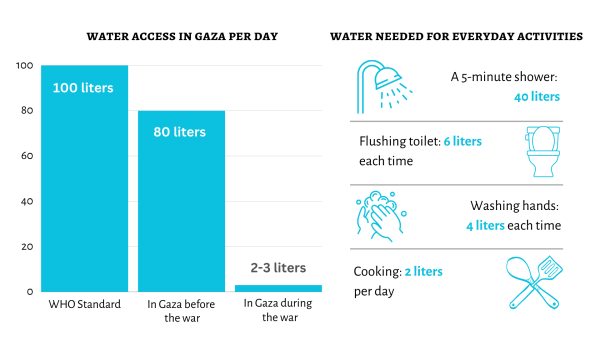 “Food is a problem, but above all, water is essential. Typically, people can go three days without receiving water, but that doesn’t take into account the underlying health issues that many Gaza civilians have sustained from the war,” said Amina Demir, the chief operating officer of the Zakat Foundation of America, one of many humanitarian organizations providing aid in Gaza.
“Food is a problem, but above all, water is essential. Typically, people can go three days without receiving water, but that doesn’t take into account the underlying health issues that many Gaza civilians have sustained from the war,” said Amina Demir, the chief operating officer of the Zakat Foundation of America, one of many humanitarian organizations providing aid in Gaza.
To further exacerbate the situation, most of the water consumed isn’t clean or safe to drink. Much of the water in Gaza has been contaminated with sewage because of the collapse of the wastewater system, leaving civilians susceptible to diseases like typhoid and cholera.
Gaza civilians are also facing a deepening food deficit. Since 2007, when Israel first enacted a sea and land blockade around Gaza, the flow of food and medicine into Gaza had to first pass through Israel. Now, with the ongoing war, restrictions on aid entering Gaza have tightened further.
“The death toll in Gaza has surpassed 8,000, and the population is grappling with dire shortages of essential resources, including health care, food, clean water, and fuel, with nowhere to go,” Justus said.
Children have made up a large portion of Gaza casualty numbers. With 47.3% of the inhabitants under the age of 18, Gaza has one of the youngest populations in the world.
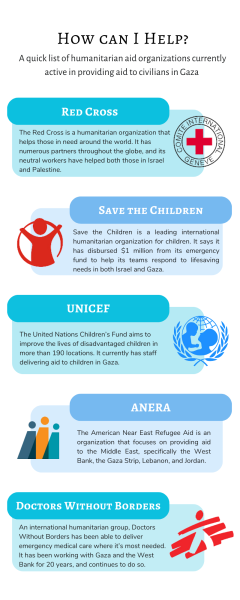 Since Oct. 7, at least 3,195 children in Gaza were killed, according to the global nonprofit Save the Children. Hit by airstrikes or misfired rockets, crushed by buildings, or burned to death by blasts, more children in Gaza have been killed in three weeks of fighting than the annual number of children killed in all of the world’s wars since 2019.
Since Oct. 7, at least 3,195 children in Gaza were killed, according to the global nonprofit Save the Children. Hit by airstrikes or misfired rockets, crushed by buildings, or burned to death by blasts, more children in Gaza have been killed in three weeks of fighting than the annual number of children killed in all of the world’s wars since 2019.
“We pray for peace. It breaks our hearts to see children being killed or people being stabbed or bombed on both sides. That’s not how we should live our lives,” said the Rev. Samer Youssef, a priest with many Palestinians in his parish at the Antiochian Orthodox Church of the Redeemer in Los Altos, Calif.
Currently, humanitarian aid in Gaza is strictly controlled. On Oct. 18, Israel announced that it would continue to block the entry of humanitarian aid from its territory, but that aid transported across the Egyptian border into Gaza is allowed.
“One of the most pressing challenges is the issue of access. Access to Gaza, for both humanitarian staff and crucial aid, including medical supplies, is severely limited,” Justus said.
Before the war began, humanitarian convoys were entering Gaza in numbers much greater than currently. Now, hundreds of trucks are waiting for the green light to deliver water, food, shelter, medical supplies, and fuel to Gaza civilians on the Egyptian side of the Rafah Border crossing, the sole crossing point not regulated by Israel.
“While some aid trucks are still managing to enter Gaza, their numbers are woefully inadequate to meet the overwhelming demand. To put this into perspective, on Oct. 29, only 33 aid trucks were able to reach Gaza, a stark contrast to the more than 100 trucks that used to arrive daily before the war began,” Justus said.
On Nov. 9, the White House announced that Israel has agreed to implement four-hour pauses every day to allow for humanitarian aid in northern Gaza, the result of efforts by the Biden administration to convince Israeli Prime Minister Benjamin Netanyahu to increase the protection of civilians in Gaza. These pauses may allow a more significant amount of life-saving resources to be distributed to Gaza.
As polarization and blame increase and the war rages on, it is crucial to set aside biases to come together and aid those facing hardship in Gaza.
“Humanity has no religion. If you’re a person who believes in a greater energy — Buddhist, Muslim, Christian, Jewish — you’ll recognize that this has nothing to do with your religion,” Demir said. “If you’re truly a human, you’ll recognize that there are people out there who are suffering and need to be aided through a humanistic approach.”
Writing by Arianna Zhu
Infographics by Isabella Zarzar

